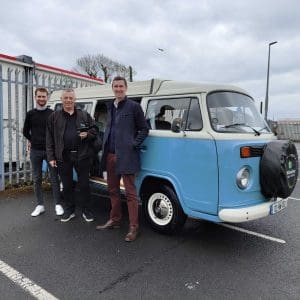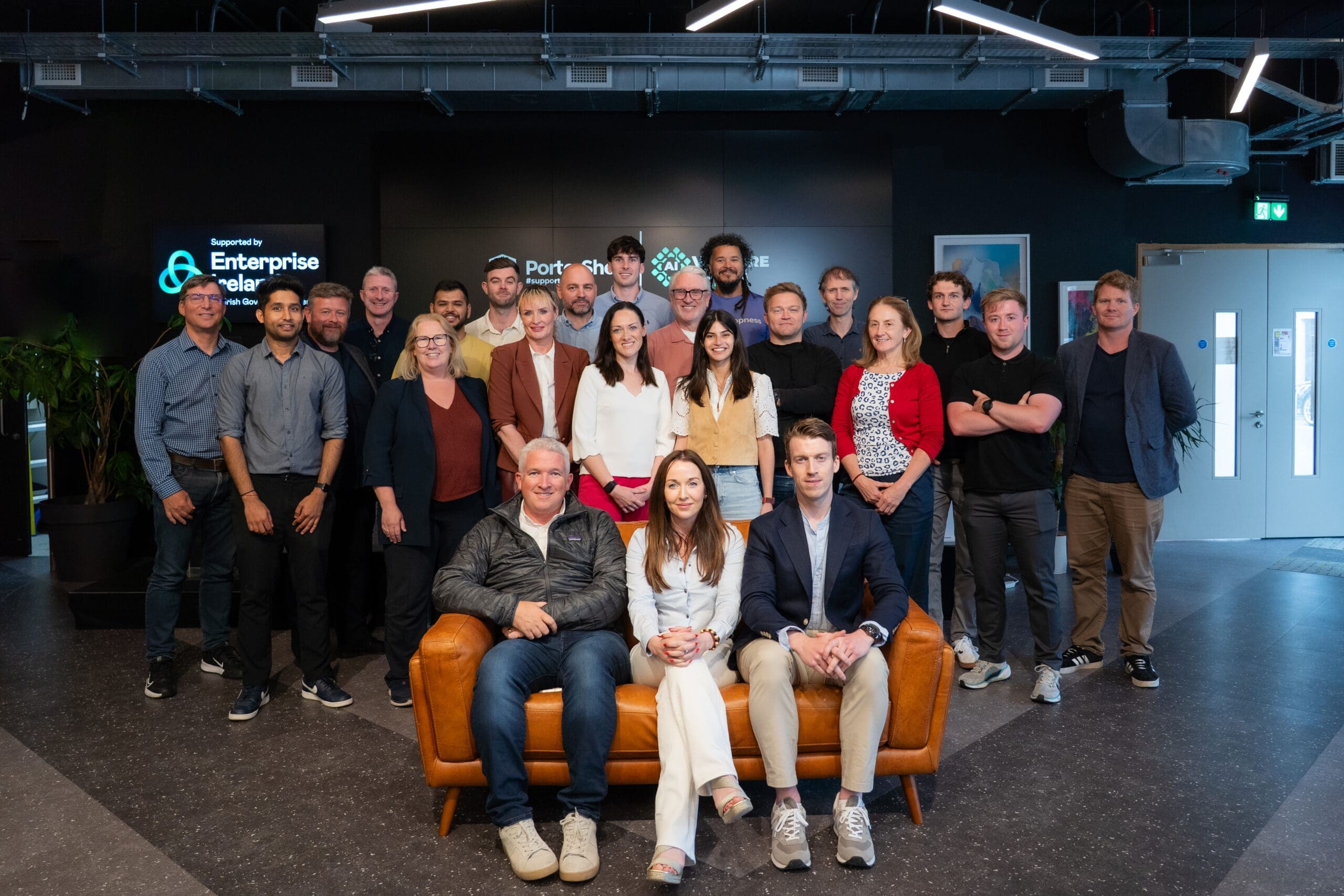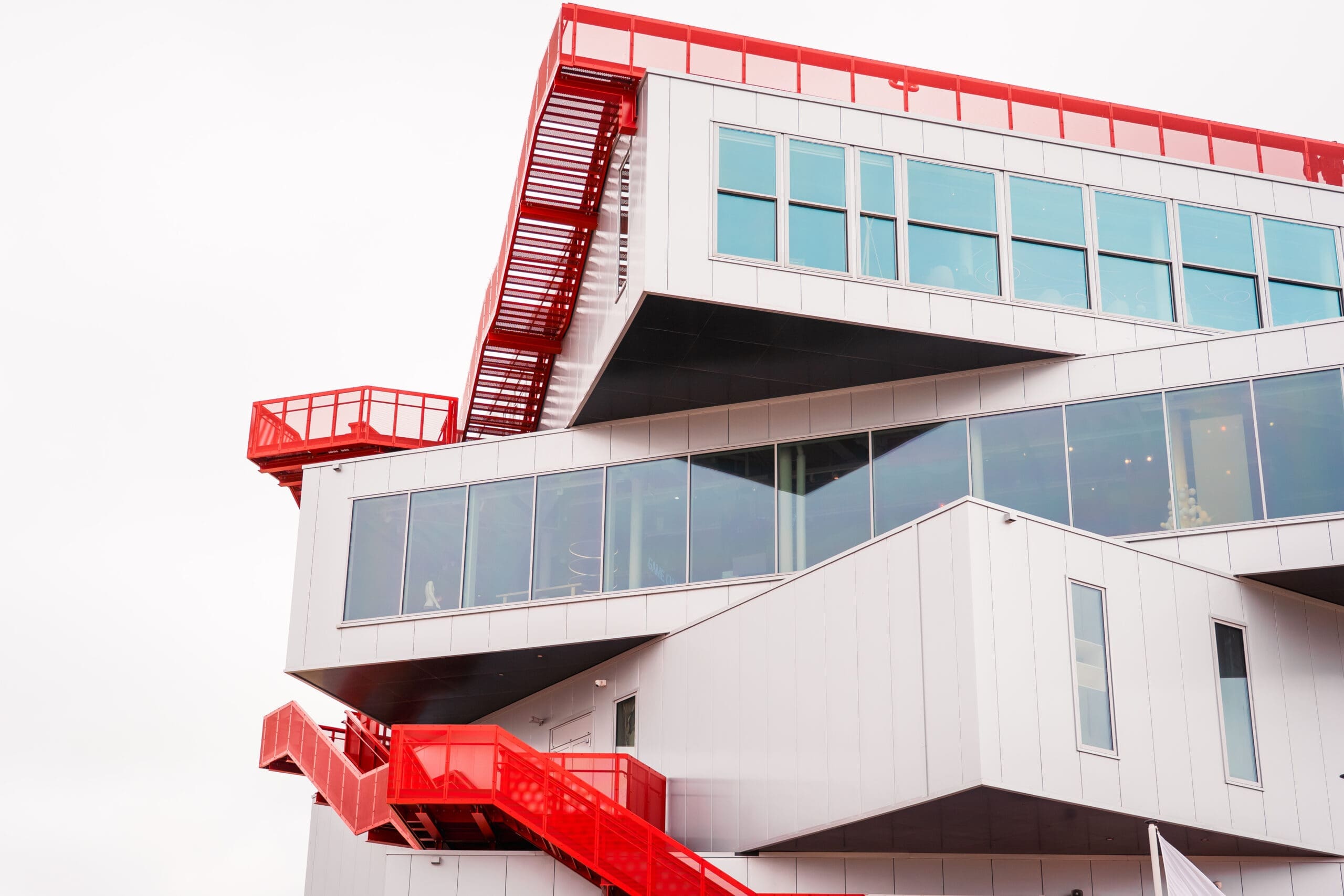HR Locker’s CEO Adam Coleman recently paid a visit to the PorterShed as he set out on a six-week trip that will see him travel throughout Ireland, the UK, and Europe in a converted camper, visiting many of the new employees that have joined his team over the last couple of years. Adam took time out to speak with the PorterShed about the future of working, the four-day work-week, and his mission to prove that #workisnolongeraplace…
HR Locker is a human resources cloud solution that aims to make it easier for companies to manage holiday planning and requests, timesheets, CPD/training management, HR document distribution & digital signing. They also offer a performance management system, and they are clued in to what businesses need to help them manage remote workers in a streamlined and efficient way.
HR Locker has grown from 12 to 36 employees since the pandemic hit, so Adam decided that now was the ideal time to touch base with many of the people he had not yet met in person – along the way, he also aims to link up with partners and customers. Adam will be travelling in his Volkswagon Type 2 Camper, modified to make sleeping, living, and working (using his trusty mobile hotspot to get online!) out of it for several weeks easier and more manageable. Ultimately, he will be aiming to show that office work can be done from anywhere, even on the road.
The shift to remote working has been a huge change for the workforce in the last few years, and it’s also been a significant challenge for many managers. For HR Locker’s Adam Coleman, though, making it part of the everyday should be easy (where possible):
“Remote working is incredible because most organisations have proven that it works,” he says.
“Listen to what the employees are saying, see if it can possibly be done under the profitability guidelines that you’re working with, then make a decision, and tell people, and let them decide whether they want to work there or not.”
For Adam, flexibility and more options like remote working form part of the trust-delivery relationship. Letting employees have more autonomy in how and when they work is something that should be normalized, he explains.
“Most people want to do a good job, so provide them with the headspace to do it. Ask them how they want to work. And if it fits inside the principles of your business, hire them – and they won’t leave, because once they get used to working in that, they probably [won’t want to] work anywhere else.”

Adam also touches on the fact that working in an office requires the hiring of two people for every single hire – “the person doing the job and the person hiding their vulnerabilities”. It’s an interesting point that reminds us once again that most people want to work so that they can live, not the other way around.
In theory, remote working makes it easier for people to fit tasks, family life, and unexpected events around their work life. Effectively, it facilitates the flexible conditions that employees want, and for Adam, it’s up to the employers to make it so that each workforce can make it happen.
Adam points to one of HR Locker’s own employees, a paid intern who opts to split her days by taking a break for a few hours in the middle of the day, before ‘making up’ the time, so to speak, in the evening. After all, people are rarely productive at the same times, and it’s refreshing to see employers – like HR Locker – who can recognise that fact and help employees achieve the tailored work-life balance they need.
Adam is also an advocate for the four-day work week, something that continues to be a hot topic for employees and employers alike, but he makes it clear that there are two distinct options on the path that lies ahead – both of which he sees as viable solutions toward one clear goal.
“There’s the four-day working week, where you basically take your five days and push everything into four days, but still pay the same and have the same benefits. And then there’s the condensed working week where you do four 12-hour days or 10-hour days, and they are two very distinct things.
“But they lead to one thing that’s very important – a three-day weekend, which is where the gold is. So, some businesses might go on the compressed working week, some might go with the other option…or sometimes the compressed workweek might be a step towards the other one, and I think that’s the way to go,” he said.
As Adam continues his journey from Ireland to mainland Europe, you can keep up with his various stops along the way, by connecting with him on LinkedIn, and you can also keep up to date with all the fun and updates through Twitter.
Visit HR Locker’s website to find out more about the company and what they are doing.
By Trevor Murray

Content Marketing Specialist at the PorterShed
Email: trevor@portershed.com | LinkedIn | Twitter


